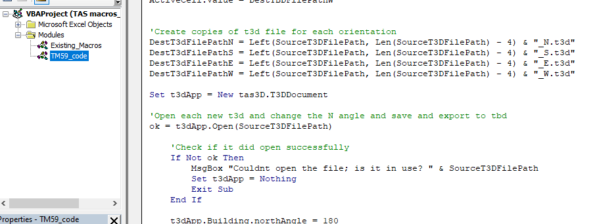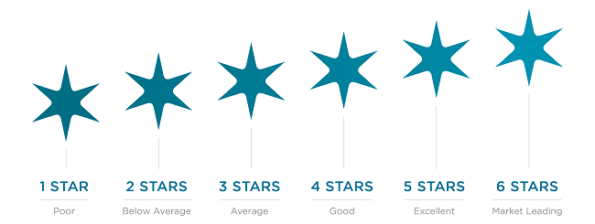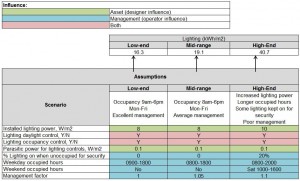CIBSE Technical Symposium 2024

We love the CIBSE Symposium and make an effort to attend every year – see previous write-ups. This year it took place at the Welsh School of Architecture in Cardiff 11-12th April. Claire and Susie attended and both presented papers. This blog includes a brief summary of our papers and some notes on our highlights […]
Read More- Posted by
 Susie Diamond
Susie Diamond - Posted in CIBSE, Claire Das Bhaumik, Events, NABERS, Susie Diamond, Training
 Apr, 25, 2024
Apr, 25, 2024 Comments Off on CIBSE Technical Symposium 2024
Comments Off on CIBSE Technical Symposium 2024
Nerd alert! Do the automation

Automation opens up huge potential to make modelling software work harder so that I can focus my attention on the tasks that need a human brain – getting the initial model creation right, and interpreting the results.
- Posted by
 Susie Diamond
Susie Diamond - Posted in Overheating, Research, Susie Diamond, Training
 Feb, 10, 2023
Feb, 10, 2023 Comments Off on Nerd alert! Do the automation
Comments Off on Nerd alert! Do the automation
NABERS UK

Does everybody need good NABERS? The National Australian Built Environment Rating System (NABERS) has proved itself effective at significantly improving in-use energy performance in (initially mostly office) buildings in the Australian market, and is now being introduced to the UK. There are two key elements: Design for Performance – this is a framework providing a […]
Read More- Posted by
 Susie Diamond
Susie Diamond - Posted in Claire Das Bhaumik, NABERS, Research, Training
 Oct, 18, 2021
Oct, 18, 2021 Comments Off on NABERS UK
Comments Off on NABERS UK
New CIBSE publication on Integrated School Design
CIBSE have recently published TM57 Integrated School Design. This document covers various design aspects for schools such as thermal comfort, acoustics, daylighting, air quality and ventilation. It states: “Teaching and learning spaces pose a great challenge to designers and engineers as the environmental needs are more complex than with most rooms. The challenge […]
- Posted by
 Claire Das Bhaumik
Claire Das Bhaumik - Posted in CIBSE, Claire Das Bhaumik, Susie Diamond, Training
 Apr, 27, 2015
Apr, 27, 2015 Comments Off on New CIBSE publication on Integrated School Design
Comments Off on New CIBSE publication on Integrated School Design
Inkling offers ESOS services
Inkling is working with a number of partners, including lead assessors, designers and installers, in order to provide a full package of ESOS compliance services. Our team has the depth of experience, skills and knowledge to ensure your ESOS audit will be carried out efficiently while meeting the complex compliance requirements laid down by […]
- Posted by
 Claire Das Bhaumik
Claire Das Bhaumik - Posted in Claire Das Bhaumik, Training
 Jan, 13, 2015
Jan, 13, 2015 Comments Off on Inkling offers ESOS services
Comments Off on Inkling offers ESOS services
What is adaptive thermal comfort?
Overheating in buildings has historically been quantified by the number of occupied hours per year that the indoor temperature exceeds a particular temperature, irrespective of external temperatures. However, recent research has shown that comfortable room temperature changes with the external air temperature meaning that occupants are comfortable with higher room temperatures during warm weather. This […]
Read More- Posted by
 Claire Das Bhaumik
Claire Das Bhaumik - Posted in Research, Training
 Jun, 30, 2014
Jun, 30, 2014 Comments Off on What is adaptive thermal comfort?
Comments Off on What is adaptive thermal comfort?
Mind the ‘Performance Gap’ – Inkling offering CIBSE TM54 predicted in-use energy modelling

The “Performance Gap” – the difference between design predictions and operational energy use – is a serious issue for our industry. The CarbonBuzz web site shows that many buildings consume between 1.5 and 2.5 times the predicted design energy. In order to address this, the industry needs both better energy-use predictions and a greater […]
- Posted by
 Claire Das Bhaumik
Claire Das Bhaumik - Posted in CIBSE, Training
 May, 27, 2014
May, 27, 2014 Comments Off on Mind the ‘Performance Gap’ – Inkling offering CIBSE TM54 predicted in-use energy modelling
Comments Off on Mind the ‘Performance Gap’ – Inkling offering CIBSE TM54 predicted in-use energy modelling
Inkling to offer more training sessions
Following on from our first (sell-out) training day on predicting in-use energy performance (in association with Colin Lillicrap): http://www.colinlillicrapassociates.co.uk/8.html which took place on 7th May (the next date with places still available is 4th June – follow the link to book); we are now working with Sarah Davis at Skills4Stem to develop further #BuildingPhysics related training sessions […]
Read More- Posted by
 Susie Diamond
Susie Diamond - Posted in Training
 May, 07, 2014
May, 07, 2014 Comments Off on Inkling to offer more training sessions
Comments Off on Inkling to offer more training sessions
Part L2A 2013 – “How to pass” – Part 2
The Notional Building To assess carbon compliance with the Part L 2013 building regulations, the building as designed is entered into modelling software and compared to a baseline building known as the ‘Notional’ building. The Notional building is defined by the rules in the NCM modelling guide (for buildings other than dwellings). The following […]
Read More- Posted by
 Claire Das Bhaumik
Claire Das Bhaumik - Posted in Research, Training
 Mar, 20, 2014
Mar, 20, 2014 Comments Off on Part L2A 2013 – “How to pass” – Part 2
Comments Off on Part L2A 2013 – “How to pass” – Part 2
Part L2A 2013 – “How to pass” – Part 1
Part L2A 2013 The Building Regulations Approved Document Part L2A 2013 for non-domestic buildings have recently been released. These regulations come into force in England on 6th April 2014. Separate rules apply to Wales, Scotland and Northern Ireland. Transitional arrangements will apply and these are the same as for the 2010 regulations update […]
- Posted by
 Claire Das Bhaumik
Claire Das Bhaumik - Posted in Research, Training
 Mar, 20, 2014
Mar, 20, 2014 Comments Off on Part L2A 2013 – “How to pass” – Part 1
Comments Off on Part L2A 2013 – “How to pass” – Part 1

 Susie: 07972 263 676
Susie: 07972 263 676
 Join Us On In.com
Join Us On In.com
